They must face genocide trial
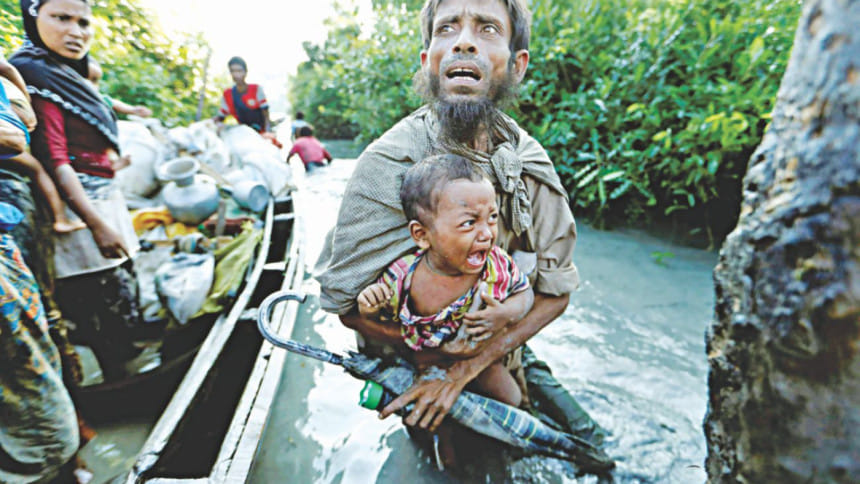
The Myanmar military leadership, including its commander-in-chief and five top generals, must be investigated and prosecuted for genocide, crimes against humanity and war crimes over its actions against the Rohingyas, a UN fact-finding mission said.
The mission found that the Myanmar military carried out mass killing and gang rapes of Rohingyas with "genocidal intent" while the civilian government led by Aung San Suu Kyi allowed hate speech to thrive, destroyed documents and failed to protect minorities from crimes.
It called upon the UN Security Council to set up an ad hoc tribunal to try suspects or refer them to the International Criminal Court in The Hague.
The Security Council also should impose an arms embargo on Myanmar and adopt targeted individual sanctions, including travel bans and asset freezes, against those who appear most responsible for serious crimes under international law, said the UN mission in its report published yesterday.
The three-member mission, established by the UN Human Rights Council in March 2017, meticulously assembled hundreds of accounts of displaced Rohingyas, research, analysis, satellite footage and other information to prepare the report.
The team was not granted access to Myanmar and has decried a lack of cooperation or even response from the government, which received an early copy of the report.
The report focused on the situation in Kachin, Rakhine and Shan states of Myanmar since 2011. It reflects the resumption of hostilities in Kachin and escalation in Shan in 2011, and the outbreak of major violence in Rakhine the next year.
These events were turning points, generating renewed allegations of serious human rights violations and abuses.
Through hundreds of interviews with Rohingya refugees and use of satellite footage, the team compiled accounts of crimes including gang rape, torching of hundreds of villages, enslavement, and killings of children -- some before the eyes of their own parents.
The mission cited a "conservative" estimate that some 10,000 people were killed in the violence, but outside investigators have had no access to the affected regions -- making a precise accounting elusive, if not impossible.
Above all, the investigators said the situation in Myanmar should be referred to the International Criminal Court, and if not, to a special tribunal. The Myanmar government on August 9 rejected any cooperation with the ICC, to which it is not a party.
GRAVEST CRIMES UNDER INT'L LAW
The mission found that the Myanmar armed forces had taken actions that "undoubtedly amount to the gravest crimes under international law" and "grossly disproportionate to actual security threat".
"Based on the body of information collected, the mission concludes on reasonable grounds that serious crimes under international law have been committed that warrant criminal investigation and prosecution."
The UN defines genocide as acts meant to destroy a national, ethnical, racial, or religious group in whole or in part.
READ MORE: All stories on Rohingya crisis
"The Rohingyas are a protected group under this definition. Their treatment by the Myanmar security forces, acting in concert with certain civilians, includes conduct which amounts to four of the five defined prohibited acts; (a) killing, (b) causing serious bodily or mental harm, (c) inflicting conditions of life calculated to bring about the physical destruction of the group in whole or in part, and (d) imposing measures intending to prevent births," the report said.
The UN panel, led by former Indonesian attorney general Marzuki Darusman, named the Myanmar army's commander-in-chief, Senior-General Min Aung Hlaing, and five other generals who should face justice.
Darusman said Aung Hlaing should step down pending investigation.
"Accountability can only take place both from the point of view of the international community but also from the people of Myanmar if the single most significant factor is addressed. And that is the role of the commander-in-chief, Min Aung Hlaing."
The five other generals are Vice-Senior General Soe Win; Lieutenant-General Aung Kyaw Zaw; Major General Maung Maung Soe; Brigadier General Aung Aung and Brigadier General Than Oo.
Of them, Brigadier General Aung Aung is commander of the 33rd Light Infantry Division, which oversaw operations in the coastal village of Inn Din where 10 Rohingya captive boys and men were killed, reports Reuters.
That massacre was uncovered by two Reuters journalists, who were arrested last December and are being tried on charges of violating Myanmar's Official Secrets Act.
Additionally, the Myanmar Police Force, Nasaka and Border Guard Police were also perpetrators of crimes in Rakhine State. Local authorities, militias, militant "civilian" groups, politicians and monks participated or assisted in violations, to varying degrees.
The investigators said a longer list of names is to be kept in the office of the UN human rights chief for possible use in future judicial proceedings.
The UN mission, known as the Independent International Fact-Finding Mission on Myanmar, called for the creation of a special body, or "mechanism," to keep watch on the still-evolving human rights situation in Myanmar.
Its report said the United Nations' own role in the country since 2011 should be reviewed to see if the world body did all it could to prevent such a crisis.
SUU KYI SLAMMED
Criticism was also directed at Aung San Suu Kyi, a Nobel Peace Prize laureate who has been widely attacked for a perceived failure to stand up for the stateless minority, writes AFP.
The UN report found that she had "not used her de facto position as head of government, or her moral authority, to stem or prevent the unfolding events". She also did not seek alternative avenues to meet a responsibility to protect the civilian population.
The civilian authorities led by her spread false narratives, denied the Tatmadaw's wrongdoing, blocked independent investigations, including of the UN mission; and overseen destruction of evidence.
While acknowledging that her civilian authorities had little influence on military actions, the UN mission said they "through their acts and omissions ... have contributed to the commission of atrocity crimes."
MASS KILLING, RAPE
Immediately after the attack of Arakan Rohingya Salvation Army on August 25 last year, the security forces started a brutal crackdown that encompassed hundreds of villages across Maungdaw, Buthidaung and Rathedaung.
The authorities called it "clearance operation", which sent nearly 725,000 Rohingyas fleeing to Bangladesh and constituted a human rights catastrophe.
Mass killings were perpetrated in Min Gyi (Tula Toli), Maung Nu, Chut Pyin, Gudar Pyin, and villages in Koe Tan Kauk tract. Information collected by the UN panel suggests that the estimate of up to 10,000 deaths is conservative.
In some cases hundreds of people died. In both Min Gyi and Maung Nu, villagers were gathered together, before men and boys were separated and killed.
In Min Gyi, women and girls were taken to nearby houses, gang raped, then killed or severely injured. Houses were locked and set on fire. Bodies were transported in military vehicles, burned and disposed of in mass graves.
Rape and other forms of sexual violence were perpetrated on a massive scale. Large-scale gang rape by Tatmadaw soldiers occurred in at least ten village tracts of northern Rakhine. Sometimes up to 40 women and girls were raped or gang raped together.
Women and girls 13 to 25 years of age were targeted, including pregnant women. Rapes were accompanied by derogatory language and threats to life like, "We are going to kill you this way, by raping you."
Women and girls were systematically abducted, detained and raped in military and police compounds, often amounting to sexual slavery.
Children were subjected to, and witnessed, serious human rights violations including killing, maiming and sexual violence. They were killed in front of their parents, and young girls were targeted for sexual violence.
The mission highlighted four key common characteristics of Tatmadaw operations in Myanmar, targeting civilians, sexual violence, exclusionary rhetoric and impunity. It said the military has consistently failed to respect international human rights law.
"The crimes in Rakhine State, and the manner in which they were perpetrated, are similar in nature, gravity and scope to those that have allowed genocidal intent to be established in other contexts," said the UN panel.
"The scale, brutality and systematic nature of these violations indicate that rape and sexual violence are part of a deliberate strategy to intimidate, terrorise or punish a civilian population, and are used as a tactic of war," it added.

 For all latest news, follow The Daily Star's Google News channel.
For all latest news, follow The Daily Star's Google News channel. 



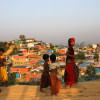
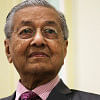
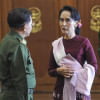
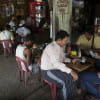
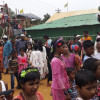


Comments